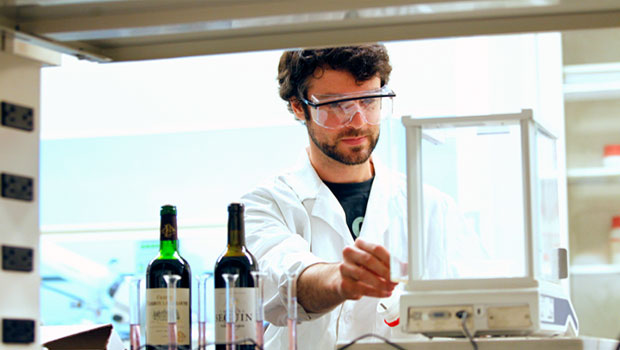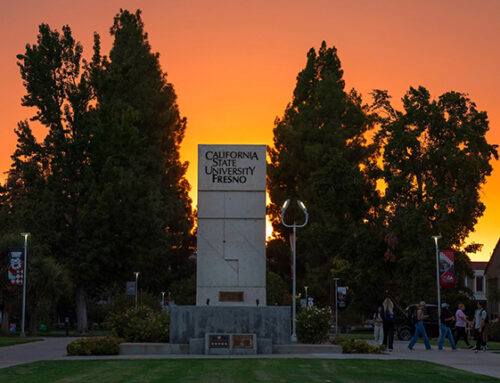A research project now underway by Fresno State and UC Davis viticulturists will examine the chemistry and management of red wine quality and with the harvest and crush now in full swing, they are inviting the wine industry to submit wines for analysis.
Dr. James Kennedy, professor and chair of the Department of Viticulture and Enology at Fresno State, is spearheading the project that combines his expertise in wine chemistry with the sensory science expertise of Dr. Hildegarde Heymann, professor in the Department of Viticulture and Enology at UC Davis.
Funded jointly by the American Vineyard Foundation and the California State University Agricultural Research Institute, the three-year project will include wines bottled this year, said Kennedy, an internationally recognized scientist in grape and wine tannin chemistry.
“Recent advances in our understanding of tannin chemistry and its routine measurement, affords us with the ability to define wine composition like never before,” Kennedy said.
Heymann’s research in wine sensory evaluation provides a complementary and synergistic role in the investigation.
“The opportunity to overlay sensory response to wine chemistry provides us with a unique and exciting opportunity to enhance our understanding of mouthfeel quality and our ability to manage mouthfeel descriptors,” she said.
Mouthfeel is the physical sensation a food or drink creates in the mouth, including the tongue and the roof of the mouth.
This study’s first phase, expected to take six to nine months, will analyze a large enough set of wines so that a subset can be selected for the second phase of study, the sensory portion, Kennedy explained.
“In the final phase of the study, chemistry and sensory data will be combined to provide meaningful information to the wine industry with regard to managing mouthfeel descriptors,” he said.
The researchers encourage the wine industry to be part of this study by submitting wine samples for analysis. Criteria:
- Wines bottled from January-June 2014.
- Two bottles of each wine must be submitted for analysis.
- For wines that are submitted, an additional 12 bottles may be required for the second phase of study, should the wine be selected for further study. Decisions on additional wine needs would be made by January 2015.
In exchange for their involvement, participating wineries will receive a report summarizing data gathered and in context of all other wines submitted, Kennedy said.
To submit analysis samples or for more information, contact Kennedy at jakennedy@csufresno.edu.
Related links:





